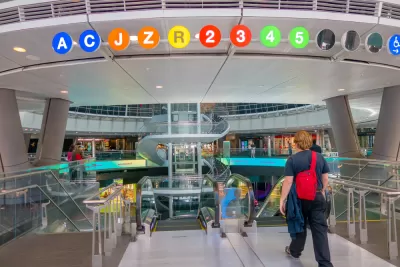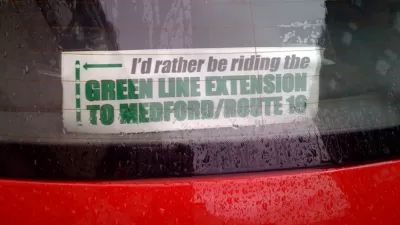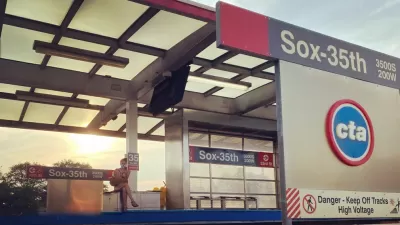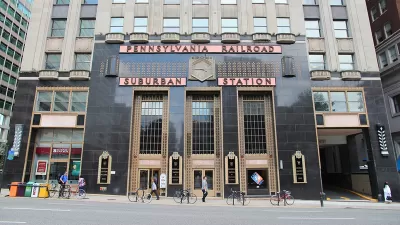The Eno Center for Transportation is answering long-overdue calls for more information about the well documented costs of transit investments in the United States.

The Eno Center for Transportation recently launched a project to explore questions about why transit investments cost so much more in the United States than they do around the world, first convening a high-level advisory panel to start to frame the assumptions and questions that will determine the direction on the project. Eno will soon begin several detailed case studies of emblematic projects in the United States and abroad.
Robert Puentes writes to explain the goals of the project:
In the end, this research and resulting policy recommendations will change the current national conversation about systemic problems to opportunities for better mass transit project delivery. It will raise the level of discourse by shifting from idiosyncratic anecdotes to comprehensive national and international data. And it will directly inform federal policymakers as they pursue a reform-minded reauthorization, as well as helping state and local actors invest in transit networks to grow local their economies, reduce greenhouse gases from transportation, and connect people to opportunity.
The new project seems to finally respond to a recent wave of questions about the lack of scientific and academic inquiry into the country's exorbitantly high transit construction costs. The conversation owes its existence to the work of Alon Levy, specifically with reference to the Second Avenue Subway in New York City.
FULL STORY: Eno Project Seeks to Understand Transit Costs/Delivery

Alabama: Trump Terminates Settlements for Black Communities Harmed By Raw Sewage
Trump deemed the landmark civil rights agreement “illegal DEI and environmental justice policy.”

Study: Maui’s Plan to Convert Vacation Rentals to Long-Term Housing Could Cause Nearly $1 Billion Economic Loss
The plan would reduce visitor accommodation by 25% resulting in 1,900 jobs lost.

Planetizen Federal Action Tracker
A weekly monitor of how Trump’s orders and actions are impacting planners and planning in America.

Waymo Gets Permission to Map SF’s Market Street
If allowed to operate on the traffic-restricted street, Waymo’s autonomous taxis would have a leg up over ride-hailing competitors — and counter the city’s efforts to grow bike and pedestrian on the thoroughfare.

Parklet Symposium Highlights the Success of Shared Spaces
Parklets got a boost during the Covid-19 pandemic, when the concept was translated to outdoor dining programs that offered restaurants a lifeline during the shutdown.

Federal Homelessness Agency Places Entire Staff on Leave
The U.S. Interagency Council on Homelessness is the only federal agency dedicated to preventing and ending homelessness.
Urban Design for Planners 1: Software Tools
This six-course series explores essential urban design concepts using open source software and equips planners with the tools they need to participate fully in the urban design process.
Planning for Universal Design
Learn the tools for implementing Universal Design in planning regulations.
Caltrans
Smith Gee Studio
Institute for Housing and Urban Development Studies (IHS)
City of Grandview
Harvard GSD Executive Education
Toledo-Lucas County Plan Commissions
Salt Lake City
NYU Wagner Graduate School of Public Service





























